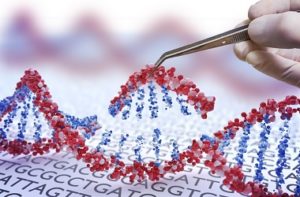“Blog entry written on: An evidence map of randomised controlled trials evaluating genetic therapies, (bmjebm-2020-111448)
Authors: Eric A. Apaydin, Andrea S. Richardson, Sangita Baxi, Jerry Vockley, Olamigoke Akinniranye, Rachel Ross, Jody Larkin, Aneesa Motala, Gulrez Azhar, Susanne Hempel.
The 1997 sci-fi film Gattaca foretold of a dark future in which parents regularly engaged in eugenics to ensure that their children had the best genetic traits possible. Genetic discrimination is common, and those with genetic abnormalities are forced to live as the underclass of society. The film tells a story of two brothers, one genetically modified and one normal (but “inferior”), and how the normal brother must falsify his identity to that of a genetically modified individual to live a normal life.
Over 20 years later, are we living in such a dark, genetically modified future? Not quite. The US FDA refuses to review therapeutic products that aim to genetically modify the human germline, so no genetic therapies that result in heritable genetic modifications or modified embryos will make it to market. However, genetic therapies targeting somatic cells, that is, any cells other than reproductive cells, are legal and on the market. These genetic therapies still alter the genes of a person’s somatic cells, however, so they theoretically can cure disease for the duration of the cells’ lives. With a single dose, these genetic therapies could potentially cure any disease they target. So, will we instead live in a disease-free future marked by genetic therapy miracle cures?
To help answer this question, we created an evidence map in our study entitled “An evidence map of randomized controlled trials [RCTs] evaluating genetic therapies.” We surveyed the current landscape of FDA approved or soon-to-be approved genetic therapies evaluated by RCTs evaluating for safety and effectiveness.
We found 119 RCTs evaluating genetic therapies for a range of conditions, and the treatments improved symptoms in a majority (60%) of studies. A majority of studies evaluating treatments for cancers, and cardiovascular, muscular, and ocular diseases reported symptom improvement as well. Most effective treatments only improved symptoms for less than a year (38%) or improved symptoms for multiple years with multiple treatments (16%). Single administration treatments that improved symptoms for more than one year were relatively rare (6%). Serious adverse events (SAEs) were also relatively common, with reports of SAEs in nearly half of studies (46% vs. 41% in comparator groups). Only six trials followed patients for at least five years. In trials, genetic therapies appear to be safe and relative to alternatives and effective in the short term. However, their long-term safety and efficacy are still unknown.
We also conducted interviews with key stakeholders for a related set of reports, and learned of several implications of the uncertainty surrounding the safety and efficacy of genetic therapies. First, there is risk of long-term adverse events, as genetic therapies modify genes within somatic cells, but this risk is understudied. Second, there are ethical considerations involved with administering therapies that may be impermanent and associated with long-term risks. Third, many genetic therapies are quite expensive, and these high prices should be scrutinized in light of unknown long-term treatment safety and efficacy. However, existing genetic therapies can still give hope to those with limited treatment options and very rare or aggressive disease.
Will we live in a dark future of genetically-modified superhumans or a new renaissance where all disease is cured? At this point, both futures seem unlikely. Genetic therapies are relatively safe and effective in the short term, but the long-term effects of these therapies are still unknown. Issues of risk, ethics, and price remain important in the face of this uncertainty. With further research, we may discover genetic therapies that significantly alter treatment for entire classes of disease. Until then, the future is still the future, just as it was in 1997.
Author
Eric Apaydin, PhD
Adjunct Policy Researcher, RAND Corporation, Santa Monica, CA
Advanced Fellow in Health Services Research & Development, VA Greater Los Angeles Healthcare System, Los Angeles, CA
Dr. Apaydin has no conflicts of interest to declare.
The contents of this article do not represent the views of the US Department of Veterans Affairs or the United States Government.
DISCLAIMER
The views and opinions expressed on this site are solely those of the original authors. They do not necessarily represent the views of the BMJ and should not be used to replace medical advice. All information on this blog is for general information, is not peer-reviewed, requires checking with original sources and should not be used to make any decisions about healthcare. No responsibility for its accuracy and correctness is assumed by us, and we disclaim all liability and responsibility arising from any reliance placed on such commentary or content by any user or visitor to the Website, or by anyone who may be informed of any of its content. Any reliance you place on the material posted on this site is therefore strictly at your own risk.

